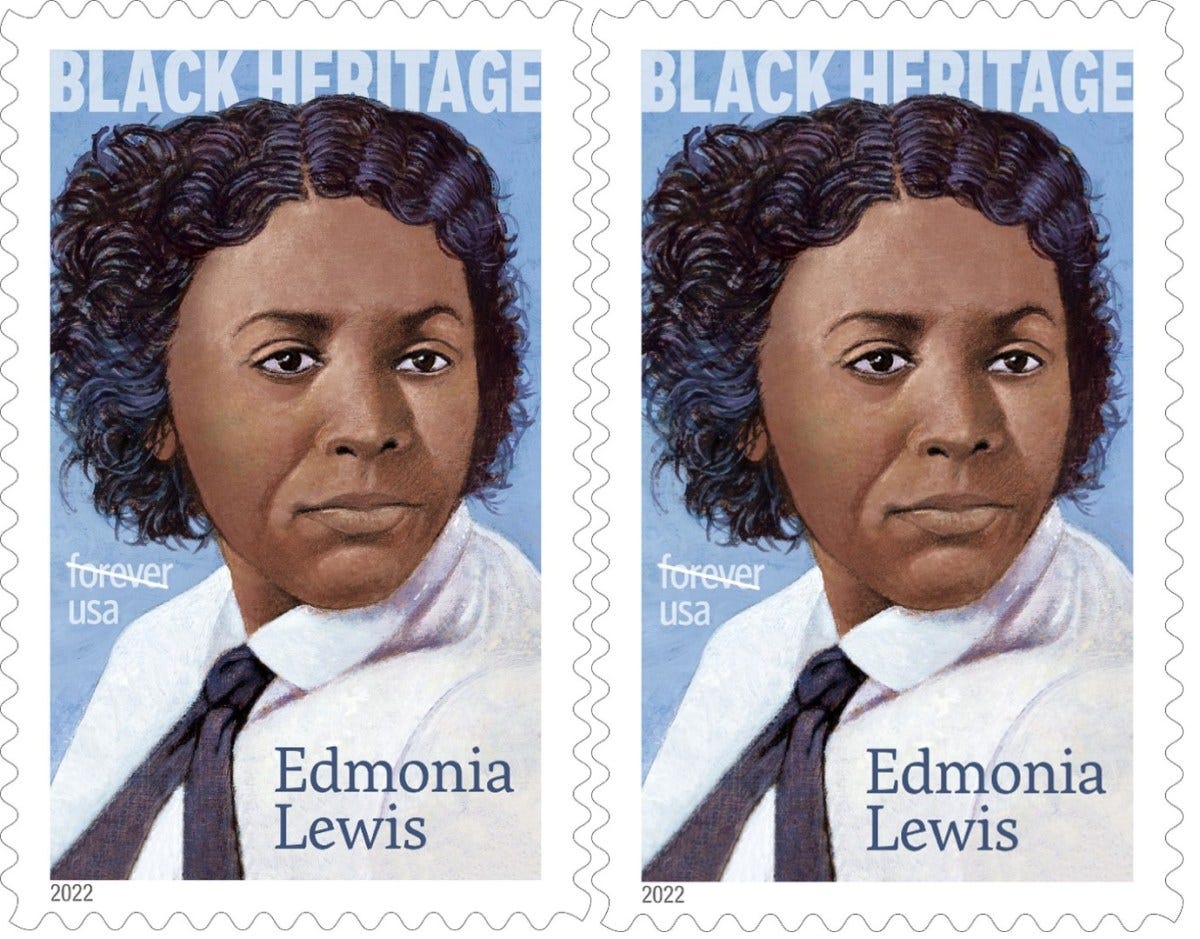
This week, Queer and the Classical discusses their new conference and the study of queerness in the ancient Mediterranean. Next, Erin L. Thompson discusses the censorship of queerness in the newly reopened galleries of the Museum of Fine Arts in Boston, Hilary Becker has a new article on ancient pigment terminology, the #aiascs commences their annual conference virtually, and much more…
The Queer and the Classical (QATC) collective began in 2020 amidst the COVID-19 pandemic, a time of heightened job precarity, white supremacist violence, transphobic abuse, and environmental disaster. Queer community nowadays is increasingly difficult to access and sorely needed. Accordingly, QATC was created in order to generate a communal space for dialogue, creative collaboration, care, and solidarity for queer classicists inside and outside academia.
Doing ‘Queer Classics’ demands taking both ‘queer’ and ‘classical’ as loosely defined categories. For us, queerness is always oppositional, always exceeding the structures that racist cis-hetero-patriarchy seeks to place on it. Such a definition places it in a strange relationship with Classics, which has traditionally served as a language for the powerful to express dubious "mastery.” Our work therefore centers on the potential of queerness to trouble Classics, the classical, the canonical, and the many ways in which these categories have caused hurt and pain. It also seeks to center performers, artists, and others marginalized by academia, whose work is often excluded from what is traditionally considered “research.”
In this vein, our second annual conference is entitled “‘You Better Work’: Queer Labour, Queer Liberation.” The conference hopes to probe the future of work (or werk) in projects of queer care, scholarship, and col(labor)ative strivings against capitalism and precarity. We welcome contributions on topics ranging from classical testimonies of labor, to the rise of classicizing aesthetics in queer pop culture, to the crisis of contingent labor in academia and beyond. Proposals are due on February 14th, 2022, and the full Call for Papers — in English, Spanish, and Italian — can be found on our website.
The QATC 2022 conference stems from the community of queer classicists who gathered around a series of previous virtual events. Our first seminar series, hosted by Oxford in 2020, was titled “Queer Futures and Potentialities.” Topics included “disturbing attachments” in queer history, transphobic methods in the study of Greek tragedy, queer theatre and performance, and the creation of new philologies around ancient sexuality (access archive here). Following the seminar series, we came together again at our 2021 conference, entitled “Critical Futures, Critical Feelings.” The aim of the conference was to explore queer identifications, affects, and attachments to antiquity — good and bad. Recordings from QATC21, including Mathura Umachandran’s keynote on queer mycelial models of relation, are available via this YouTube playlist.
This work would not be possible without the many scholars and critical Classics projects that inform our thinking. These include but are not limited to: Critical Ancient World Studies, Trans in Classics, CripAntiquity, RaceB4Race, Sportula and Sportula Europe, The Black Trowel Collective, and The Christian Cole Society for Classicists of Colour. We share with these collectives a hope for something greater, a desire for more than what the academy promises (or does not promise), a yearning for a future that is better, fairer, more queer, and more free.
Bibliography
Amin, Kadji. Disturbing Attachments: Genet, Modern Pederasty, and Queer History. Duke University Press, 2017.
Epps, Brad. “Retos, Riesgos, Pautas y Promesas de La Teoría Queer.” Revista Iberoamericana 74, no. 225 (2008): 897–920.
Gabriel, Kay. “Specters of Dying Empire: The Case of Carson’s Bacchae.” Tripwire: A Journal of Poetics, no. 14 (2018): 315–23.
Goldberg, Jonathan, and Madhavi Menon. “Queering History.” PMLA 120, no. 5 (2005): 1608–17.
Harney, Stefano, and Fred Moten. The Undercommons: Fugitive Planning & Black Study. Minor Compositions, 2013.
Ingleheart, Jennifer. Masculine Plural: Queer Classics, Sex, and Education. Oxford University Press, 2018.
Matzner, Sebastian. “Queer Unhistoricism: Scholars, Metalepsis, and Interventions of the Unruly Past.” In Deep Classics: Rethinking Classical Reception. Bloomsbury Academic, 2016.
Morgan, Cheryl. “How Not to Erase Trans History.” History Matters (blog), February 5, 2018.
Muñoz, José Esteban. Cruising Utopia: The Then and There of Queer Futurity. NYU Press, 2009.
Nguyen, Kelly. “Queering Telemachus: Ocean Vuong, Postmemories and the Vietnam War.” International Journal of the Classical Tradition 28, no.4 (2021).
Olsen, Sarah, and Mario Telò, eds. Queer Euripides: Re-Readings in Greek Tragedy. New York: Bloomsbury Academic, 2022.
Power, Miller. “Non-Binary and Intersex Visibility and Erasure in Roman Archaeology.” Theoretical Roman Archaeology Journal 3, no. 1 (2020): 1–19.
Surtees, Allison, and Jennifer Dyer, eds. Exploring Gender Diversity in the Ancient World. Edinburgh University Press, 2020.
Seen on the Web
Over at GBH (Boston) news, art historian Erin L. Thompson discusses queerness and censorship of the objects chosen for public exhibition within the reopening of the Greek and Roman galleries at the Museum of Fine Arts in Boston. In a response, Roko Rumora elaborates on the provenance problems surrounding the Warren collection—and the problems with collector E.P. Warren.


Within the journal Archaeological and Anthropological Sciences, archaeologist Hilary Becker has a new open access article on “Pigment nomenclature in the ancient Near East, Greece, and Rome.” Dr. Becker argues that pigment names go beyond just nomenclature, and rather helped painters to organize and conceptualize the natural world:
Thus, pigment nomenclature reviewed herein served two practical purposes. The first is how such a naming system helped to aid ancient peoples in an academic understanding of their world, serving to describe what they may not know, providing a fixed name, and identifying what a material is and why it was called that. For quotidian use, such names were helpful and necessary, too. An artisan or a doctor wanted to find particular materials for practical purposes—they want to use this material to paint, dye, heal, make scents.

Over at Hyperallergic, Hakim Bishara discusses the new stamps commemorating 19th century Black and Ojibwe sculptor Edmonia Lewis.
The US Postal Service will release a new stamp honoring Edmonia Lewis, known as the first internationally recognized Black American sculptor. The stamp will be debuted on January 26 in a dedication ceremony at the Smithsonian American Art Museum in Washington, D.C.
Lewis was heavily influenced by the ancient world and is the sculptor behind “The Death of Cleopatra” now at the Smithsonian American Art Museum, as well as “Hagar,” “Young Octavian,” and many other important works.

In anniversary news, the Women’s Classical Caucus, an organization that promotes gender-informed perspectives on the ancient Mediterranean world and supports scholars of all genders and historically underrepresented identities, celebrates 50 years of advocacy and activism this year. Check out this anniversary video and SCS blog post, their newly revamped website including resources and mentorship opportunities for scholars at every career stage, and a wide platform of events including several this week.
Conferences and Lectures of Interest:
The 2022 joint annual meeting of the AIA-SCS has commenced and is now all virtual. You can preview the academic programs for the AIA and the SCS online, and you can register here. The conference runs until January 8, 2022.
At the University of Oxford from April 29-30, 2022, the “Infecting the Ancient Mesopotamian Cosmos” conference commences. The organizers note: “The conference Infecting the Ancient Mesopotamian Cosmos intends to illuminate the effects of transmissible diseases in ancient Iraq via the study of cuneiform texts. More specifically, the conference will address how people in ancient Mesopotamia envisioned and described disease within the body and how it was believed to spread throughout society.” For inquiries, contact Troels Pank Arbøll at: troels.arboll@orinst.ox.ac.uk.


New Online Journal Issues curated by @YaleClassicsLib
Revue de l’histoire des religions Vol. 239, No. 4 ( 2021) La magie entre Antiquité et Moyen Âge: traditions, innovations, autorités
Studies in Late Antiquity Vol. 5, No. 4 (Winter 2021) NB: “In Memoriam: Elizabeth A. Clark” by C. Michael Chin
Synthesis Vol. 28 No. 2 (2021) #openaccess
Journal of Egyptian History Vol. 14 No. 2 (2021) NB: “Pauline Hopkins’ Literary Egyptology” by Vanessa Davies
Enoch Seminar Newsletter Vol. 5, No. 2 (Dec. 2021)
History of Classical Scholarship Vol. 3 (2021) #openaccess NB: Digital Round Table on Constanze Güthenke’s Feeling & Classical Philology w/ Lorraine Daston, Sotera Fornaro, Stefan Rebenich
OTIUM No. 11 (2021) #openaccess
‘Atiqot 105 (2021) #openaccess
Journal of Latin Cosmopolitanism & European Literatures Vol. 6 (2021) #openaccess Winckelmann's Victims
CODEX Vol. 9, No. 2 (2021) #openaccess
Cartagine: Studi e Ricerche Vol. 6 (2021) #openaccess
Mouseion Vol. 18, No. 2 (2021)
Classica Cracoviensia Vol. 24 (2021) #openaccess
Byzantion Vol.91 (2021)
Classical Journal Vol. 117, No. 2 (Dec. 2021-Jan. 2022) NB: “Introducing Renaissance Philosophy to the Undergraduate (Classics) Curriculum” by Carl S. O’Brien
Journal of Early Christian Studies Vol. 29, No. 4 (Winter 2021) NB: Stephen J. Shoemaker on Elizabeth A. Clark (1938-2021)
Studia Iranica Vol.49, No. 2 (2020)
Studia graeco-arabica Vol. 11, Fasc. 1 (2021)
Studia graeco-arabica Vol. 11, Fasc. 2 (2021) Logica graeco-arabico-hebraica
Phoenix Vol. 74, No. 1-2 (2020) moving from JSTOR to Project Muse for current issues
Acta Archaeologica Vol. 92, No. 1 (2021)
The Ancient History Bulletin Vol. 35, No. 3-4 (2021)
Journal of Roman Archaeology Vol. 34, No. 2 (2021) NB: “Statue habit and statue culture in Late Antique Rome” by Carlos Machado
Ramus Vol. 50 Special Nos. 1-2 (2021) In Terms of Athens
Boletim de Estudos Clássicos No. 66 (2021) #openaccess
Novum Testamentum Vol. 64, No. 1 (2022)
Pharos Vol. 24 (2018-2020)
Bericht der Römisch-Germanischen Kommission Vol. 99 2018 (2021) #openaccess
Vox Patrum Vol. 80 (2021) #openaccess Patristic Mariology
Pitches
The Public Books section "Antiquities" continues to take pitches for articles to be published in 2022. You can pitch to our “Pasts Imperfect” column at the LA Review of Books using this form and to the new JSTOR column here. Thanks for reading!








